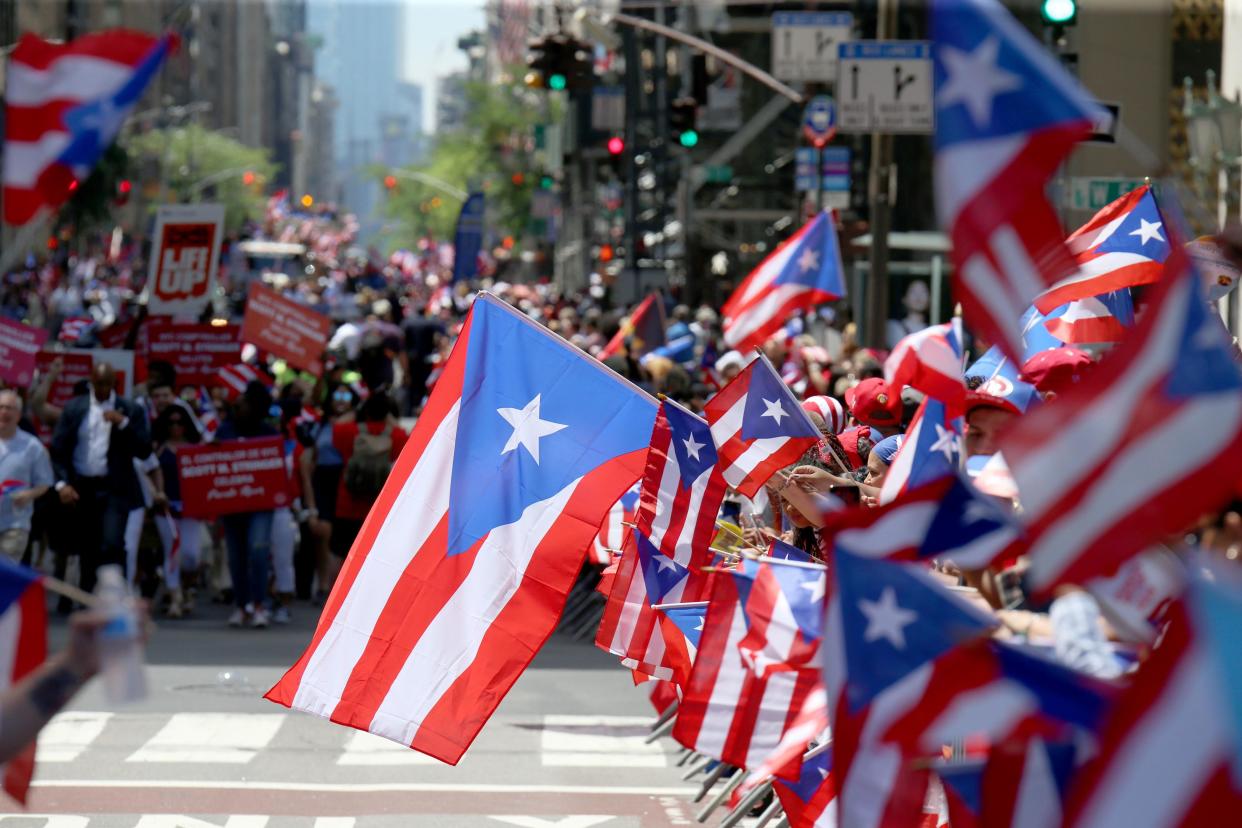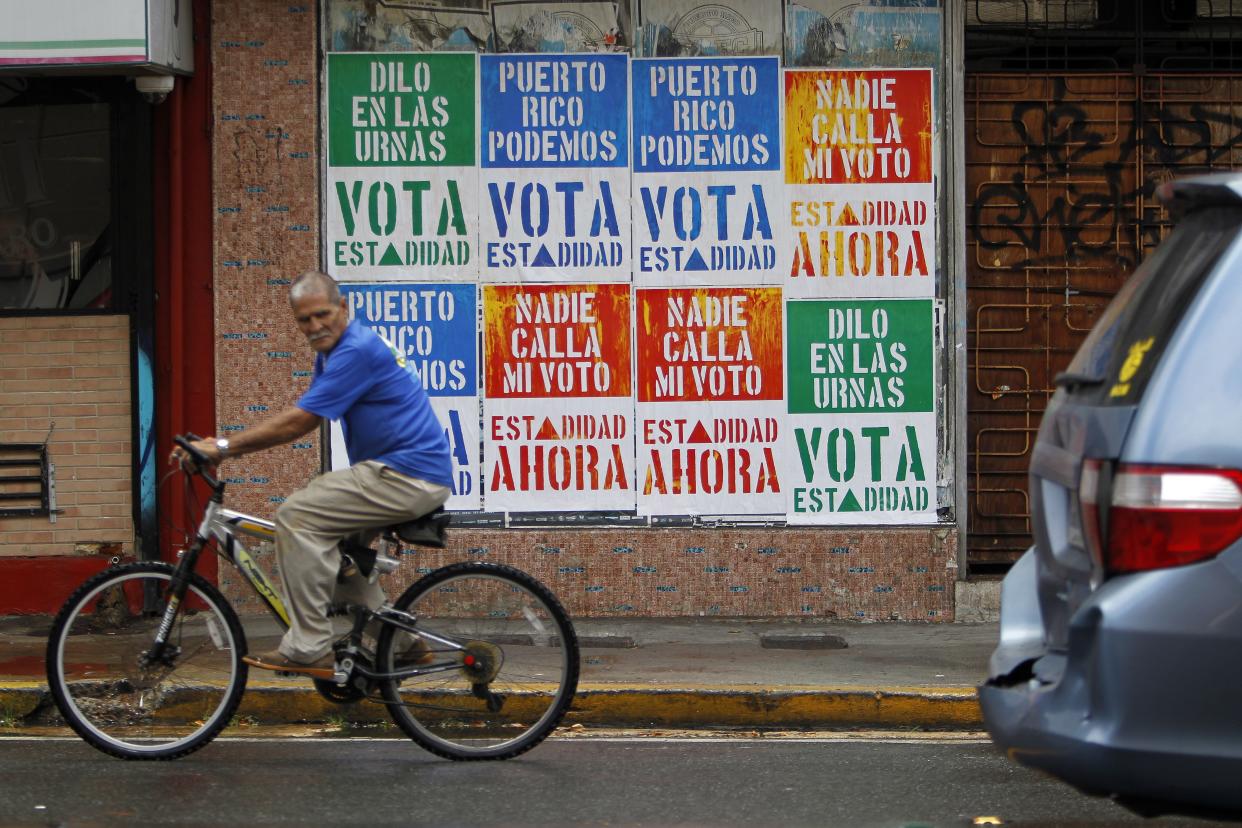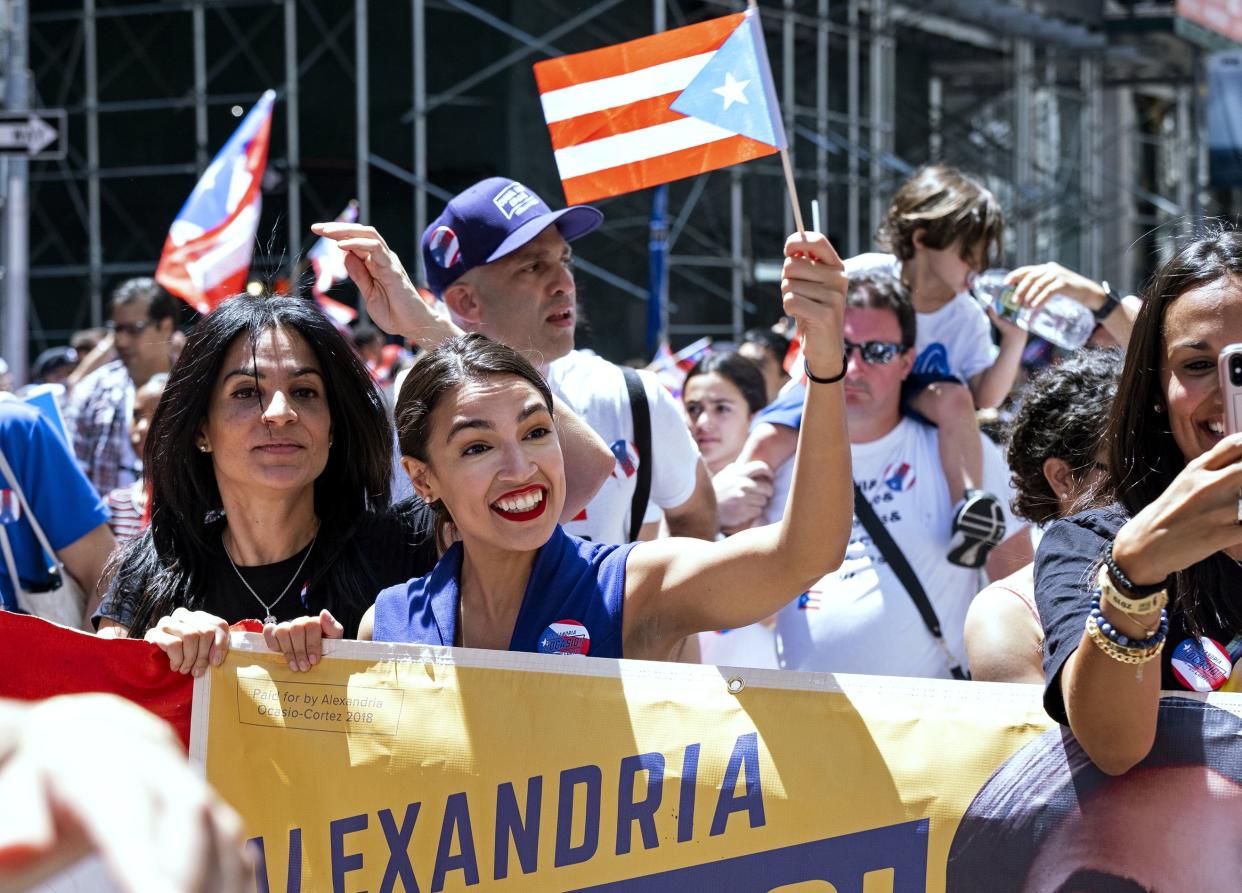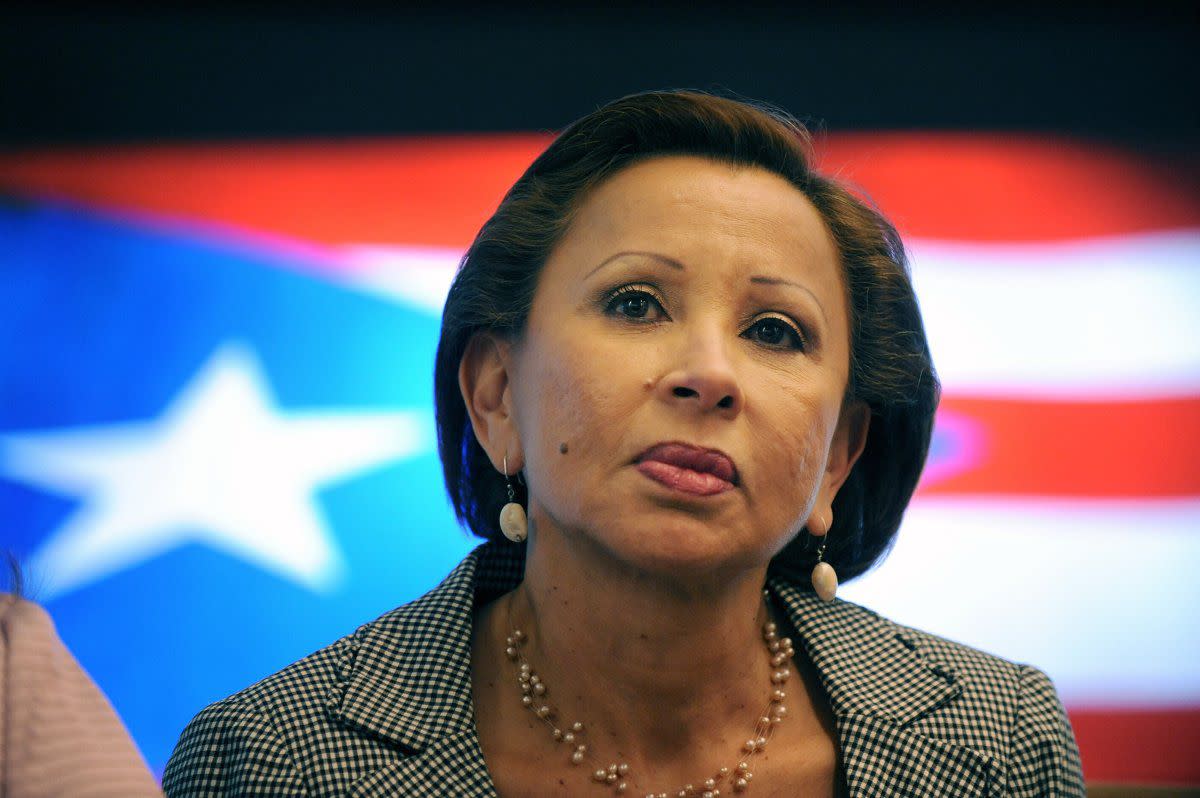Puerto Rico at a crossroads as Congress mulls vote to decide statehood or independence
As more than 1 million Puerto Ricans return to Fifth Ave. on Sunday for the pageantry and pride of their annual parade, their beloved homeland could soon face a grave choice about its future relationship with the U.S.
The swirling celebration comes as the Caribbean island where the revelers trace their roots could soon face a once-in-a-lifetime choice between becoming the 51st state or an independent nation — or something in between.

Parade attendees wave Puerto Rican flags on Fifth Avenue in Manhattan during the annual Puerto Rico Day Parade in 2019. (Luiz C. Ribeiro/)
A recent breakthrough agreement has united both supporters and opponents of Puerto Rico statehood in the U.S. Congress behind a push by a Democratic-led House of Representatives vote to authorize a binding referendum on Puerto Rico’s status.
The three choices would be statehood, independence or a hybrid known as independence with free association, whose terms would be negotiated.
Puerto Rican legislators in the U.S. Congress, and particularly New York City, are deeply divided about which option is best for the U.S. territory and the 5 million-strong diaspora on the mainland.
“This must be a decision coming from the people,” Rep. Nydia Velazquez (D-N.Y.) said this month during a fact-finding mission to the island with Rep. Alexandria Ocasio-Cortez (D-N.Y.). “We are here to listen.”
We are in Puerto Rico to meet with members of the public and leadership on the island to discuss the Puerto Rico Status Act. This must be a decision coming from the people and we are here to listen. pic.twitter.com/DiJSVDHa3p
— Rep. Nydia Velazquez (@NydiaVelazquez) June 3, 2022
Velazquez, the dean of the Puerto Rican caucus fears statehood could dilute the island’s fiercely unique culture and dependence on the Spanish language. Ocasio-Cortez agrees.
But Rep. Ritchie Torres (D-N.Y.), whose South Bronx district includes the most Puerto Ricans in the nation, says statehood is a must if Puerto Ricans are to have a real voice in their future.

A man rides his bicycle in front of a wall covered with campaign posters promoting Puerto Rico's statehood in San Juan, on June 9, 2017. (AFP/)
One option that would not be on the ballot: keeping the current territorial status. It gives Puerto Rico’s more than 3 million residents U.S. citizenship but does not allow them to vote in presidential elections, denies them many federal benefits and allows them one representative in Congress with limited voting powers. Puerto Rico became a commonwealth in 1952.
From Brooklyn and El Barrio to the South Bronx, New Yorkers with roots in Puerto Rico appear equally split on the island’s future status.
Charles Gonzalez, who hawks Puerto Rican flags, masks and t-shirts emblazoned with the motto “One Proud Rican” from a makeshift market on a Williamsburg, Brooklyn street corner, doesn’t believe the island will ever become the 51st state.
“That’s talking, talking, talking,” Gonzalez said. “The Congress is never going to do that with Puerto Rico.”
Even though Yari Ortin lives in Crown Heights, Brooklyn, she considers herself “solely Puerto Rican” and steadfastly wants the island to be an independent nation.
“We are unique, we have our own culture,” said Ortin, 35. “I know many people say it will be bad if the island becomes independent. But things are bad right now.”
Soon-to-be high school graduate Christopher Velez, 18, likes the idea of a hybrid independence with an association agreement with the U.S.
“With independence we won’t survive on our own,” said Velez, of Jamaica, Queens, who was shopping with his dad for a giant Puerto Rican flag ahead of the weekend’s festivities.

Rep. Alexandria Ocasio-Cortez, D-N.Y., center, takes part in the National Puerto Rican Day Parade, Sunday, June 9, 2019, in New York.
Despite the hunger for change, it’s very possible that nothing will happen any time soon. If the House does pass the measure it will go to the Senate where it faces a very uncertain future.
Some Republicans, including Sen. Marco Rubio (R-Fla.) support statehood, but GOP leaders fear the political impact of admitting Puerto Rico as a state.
Puerto Rico would have two senators and four House representatives. Although the island’s political parties don’t completely align with the two major ones on the mainland, Republicans fear Democrats would have a big edge, potentially shifting the balance of an evenly split Congress.

Congresswoman Nydia Velazquez (Susan Watts/New York Daily News/)
During their recent trip to the island, Velazquez and Ocasio-Cortez participated in a public forum in San Juan where speaker after speaker denounced the status quo.
AOC and Velazquez jet to Puerto Rico for talks on island's status
The next step is hearings in the House, followed by a vote possibly this summer. Democrats want to move before the midterm elections that could hand power back to the GOP.
“The visit reminded us just how big the stakes are for so many,” Rep. Raul Grijalva (D-Ariz.), chair of the House committee with jurisdiction over Puerto Rico’s status, told The News.
With Matthew Euzarraga, Ellen Moynihan and Chris Sommerfeldt
